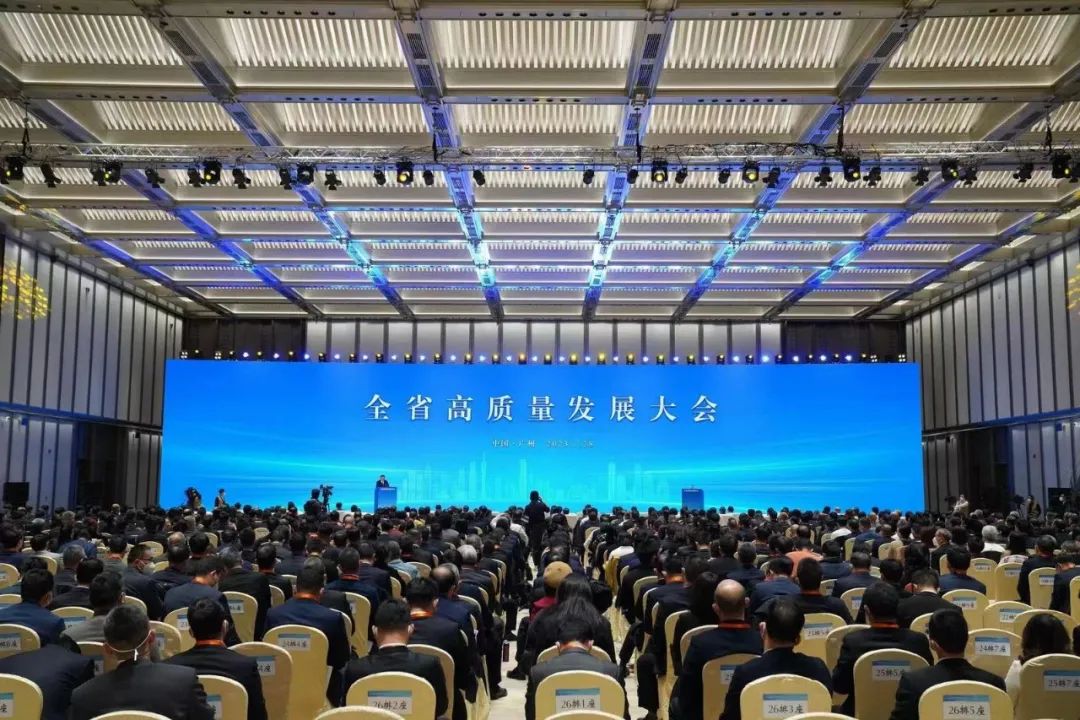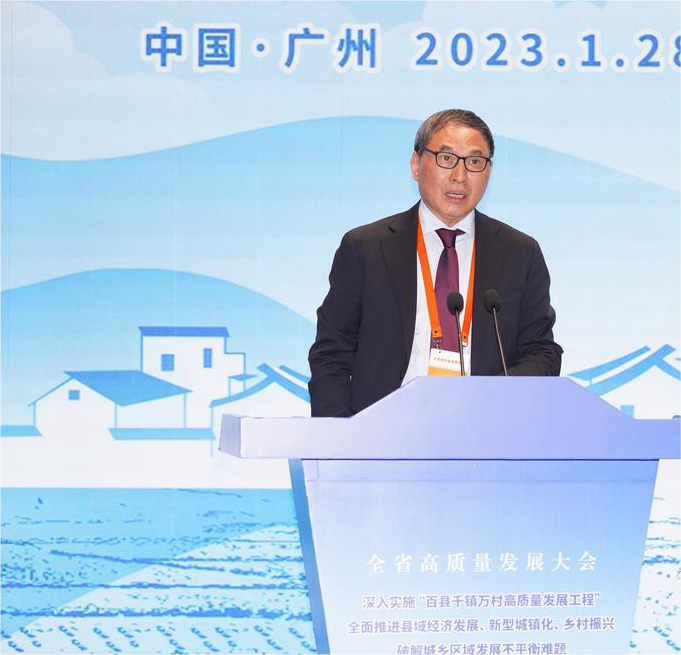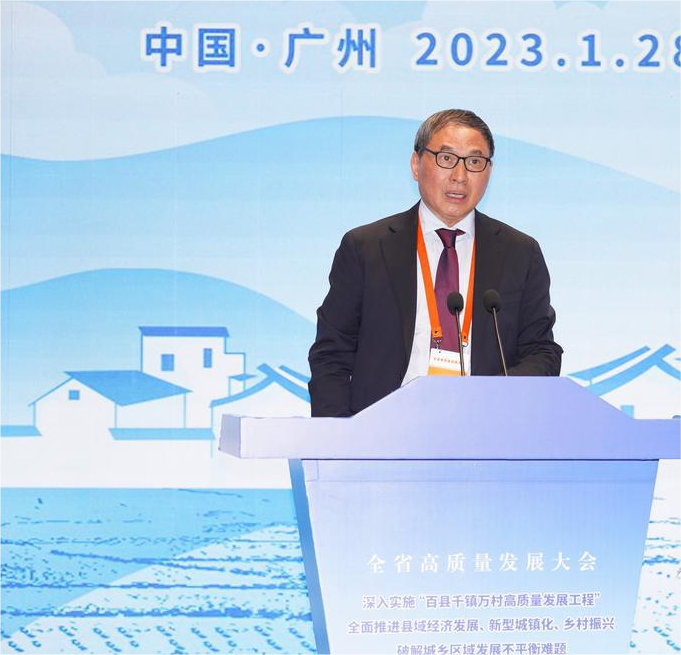Editor's Notes:The opening year should have an opening trend. On January 28, the Guangdong Provincial Committee of the Chinese Communist Party and the Guangdong Provincial Government held the provincial high-quality development conference in Guangzhou.

Conference in Guangzhou(Sources from:Zhinews)
County development, which links the city and countryside, is one of the main battlefields for the coordinated development of urban and rural areas. "County revitalization", as one of the important themes of the conference, also sparked heated discussion. The discussion in the third session of the afternoon focused on how to thoroughly implement the "high-quality development project of millions of counties, towns and countrysides" (hereinafter referred to as the "million projects"), how to comprehensively promote county economic development, new urbanization, rural revitalization, and how to solve the imbalance between urban and rural regional development. Zheng Yongnian, professor of the Chinese University of Hong Kong (Shenzhen) and president of the Qianhai Institute of International Affairs, was invited to participate in the meeting and shared the topic of <"millions of counties, towns and countrysides" and the modernization of agriculture, the countryside, and farmers>.
The weakness of China's modernization and high-quality development lies in the county, and the potential also hides in the county." Professor Zheng Yongnian pointed out that the Chinese path to modernization cannot be separated from rural modernization, and the Chinese path to modernization with the goal of common prosperity needs to be achieved through high-quality development, in which the high-quality development of agriculture is the most critical link in China's common prosperity modernization. In his view, the "million projects" has grasped the problem correctly and clarified the direction. It is a major measure for Guangdong to continue to lead the rural revitalization work and accelerate the construction of a new pattern of regional balanced development. It is also another great project for Guangdong to achieve rural modernization, high-quality agricultural development, and common prosperity after the targeted poverty alleviation project.
Professor Zheng believes that taking the county as the key point to realize rural modernization is both in line with the logic of civilization and of high strategic significance for the future. For thousands of years in China's history, the county has always been the cornerstone of social stability as a grass-roots regime, but it has been marginalized in the process of urbanization in the past decades. Therefore, the weakness of China's modernization and high-quality development lies in the county, and the potential also hides in the county. Professor Zheng also takes "Gang Ju Mu Zhang" (when the general plan is laid out, the details are easy to arrange) as an example, and believes that the “million projects" is the general plan, which not only connects the countryside, towns, and counties vertically, but also connects countrysides and countrysides, towns and towns, counties and counties horizontally, forming a network of internal and external circulation of production factors.
How to implement the "million project" and realize agricultural and rural modernization? Professor Zheng believes that it can be coordinated from three levels — material modernization, human modernization, and institutional modernization. From the perspective of material modernization, the core is agricultural modernization. We should combine agricultural modernization and urbanization, to realize the two-way circulation of rural and urban resource elements, and change the current situation of the one-way flow of resources from rural to urban. In terms of human modernization, it is necessary not only to retain rural talents, but also to attract the urban middle class into the countryside, bring wealth and culture through institutional reform, and change the cultural weaknesses in rural areas. From the institutional level, we should deepen the reform of the county, town, and countryside governance system, and restore the core position of the county government in grass-roots governance.

Professor Zheng Yongnian (Sources from: https://www.ycwb.com/)
Professor Zheng stressed that Guangdong must lead the country's modernization of agriculture, the countryside, and farmers, and be the leader of the Chinese path to modernization, both for the economic development level and for the forerunner experience of reform and opening up. "In terms of development stage and economic volume, Guangdong is also one of the provinces that have the most conditions to promote the modernization of agriculture, the countryside, and farmers."
To realize the coordinated promotion of the above three levels of modernization in Guangdong, an important approach is to further strengthen the provincial overall planning, and the "million projects" is the key to strengthening the provincial overall planning. Professor Zheng put forward specific suggestions to improve medical care, education, public housing, and social security in the field of public services; In the field of rules, standards, and management, Guangdong needs to speed up the provincial overall planning and focus on transforming the short board of county, town and countryside development into the "potential board" of high-quality development. He also mentioned in particular, "Guangdong should not only continue to learn from the experience of other provinces, but also sum up the experience of "million projects" so that it can be popularized, radiated and replicated, and lead the country's modernization and high-quality development of agriculture, the countryside, and farmers."
GBA Review



